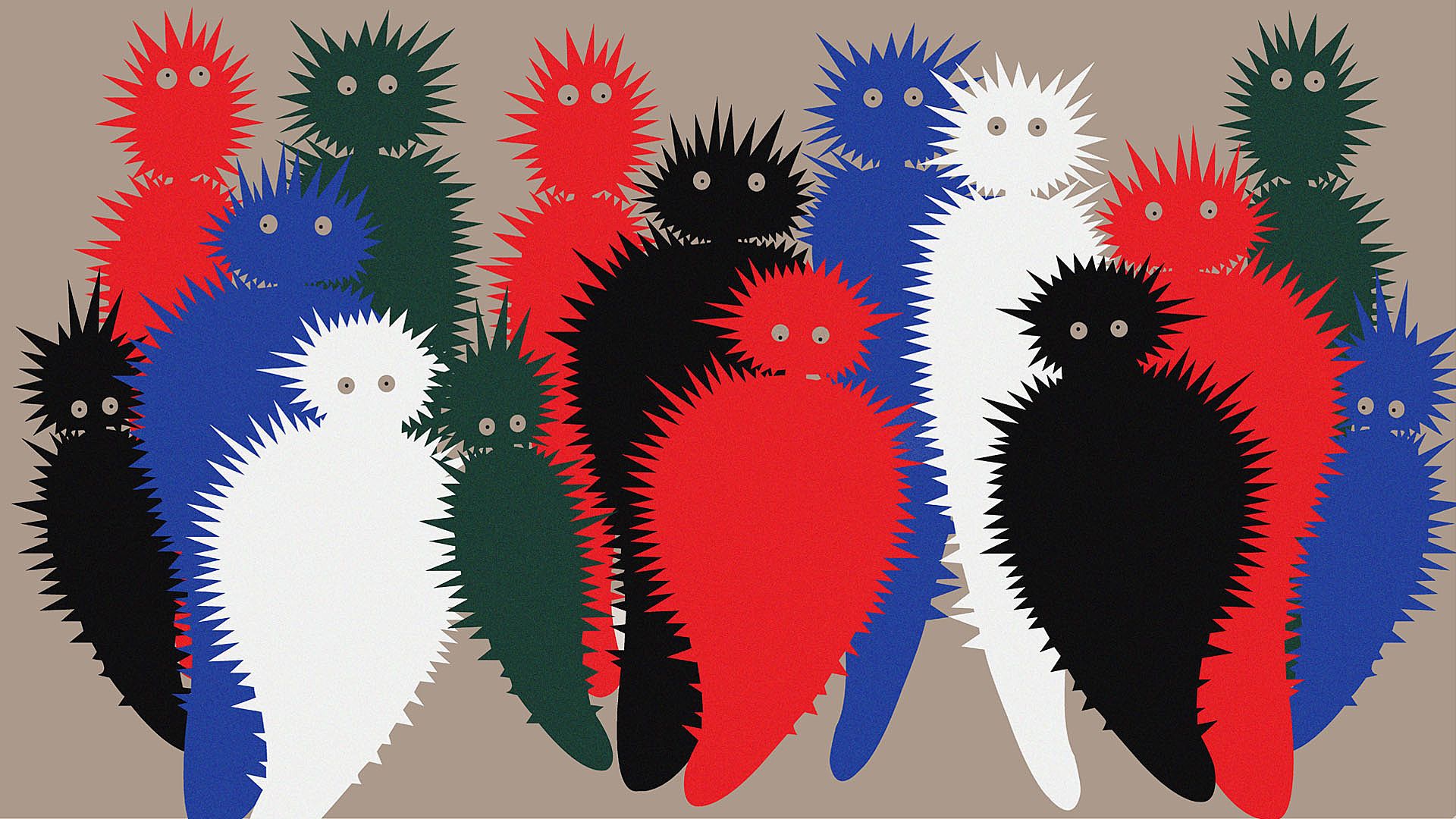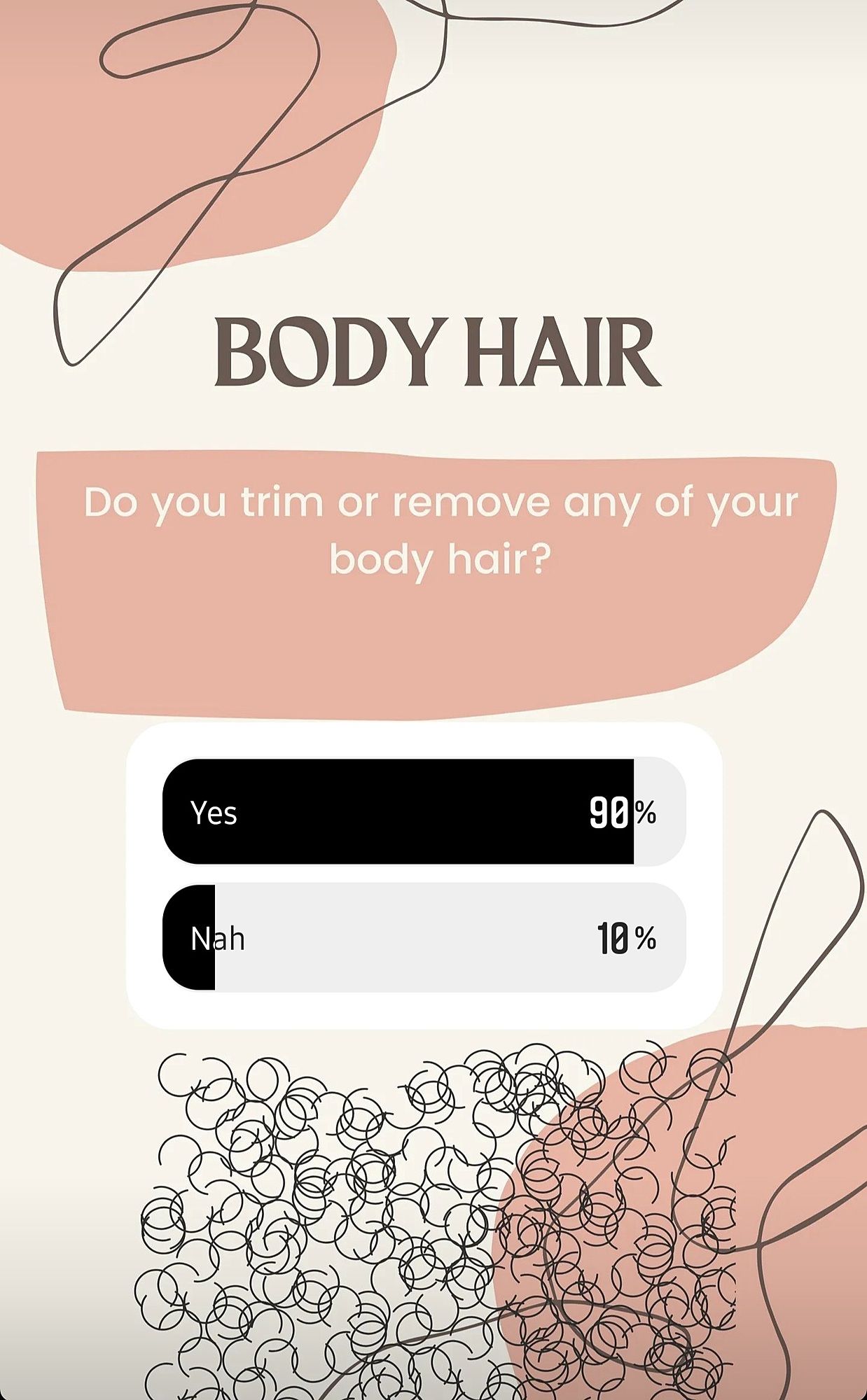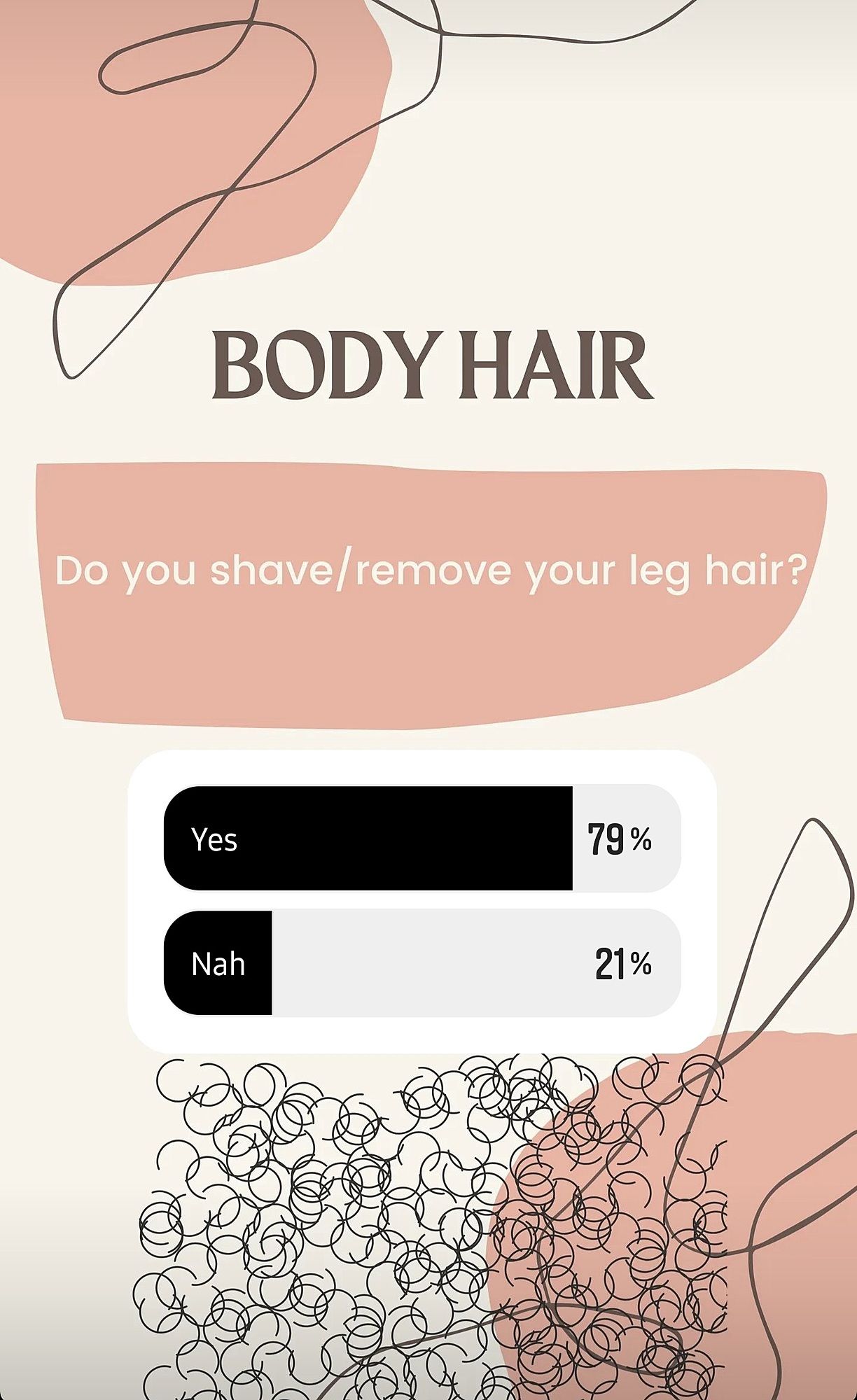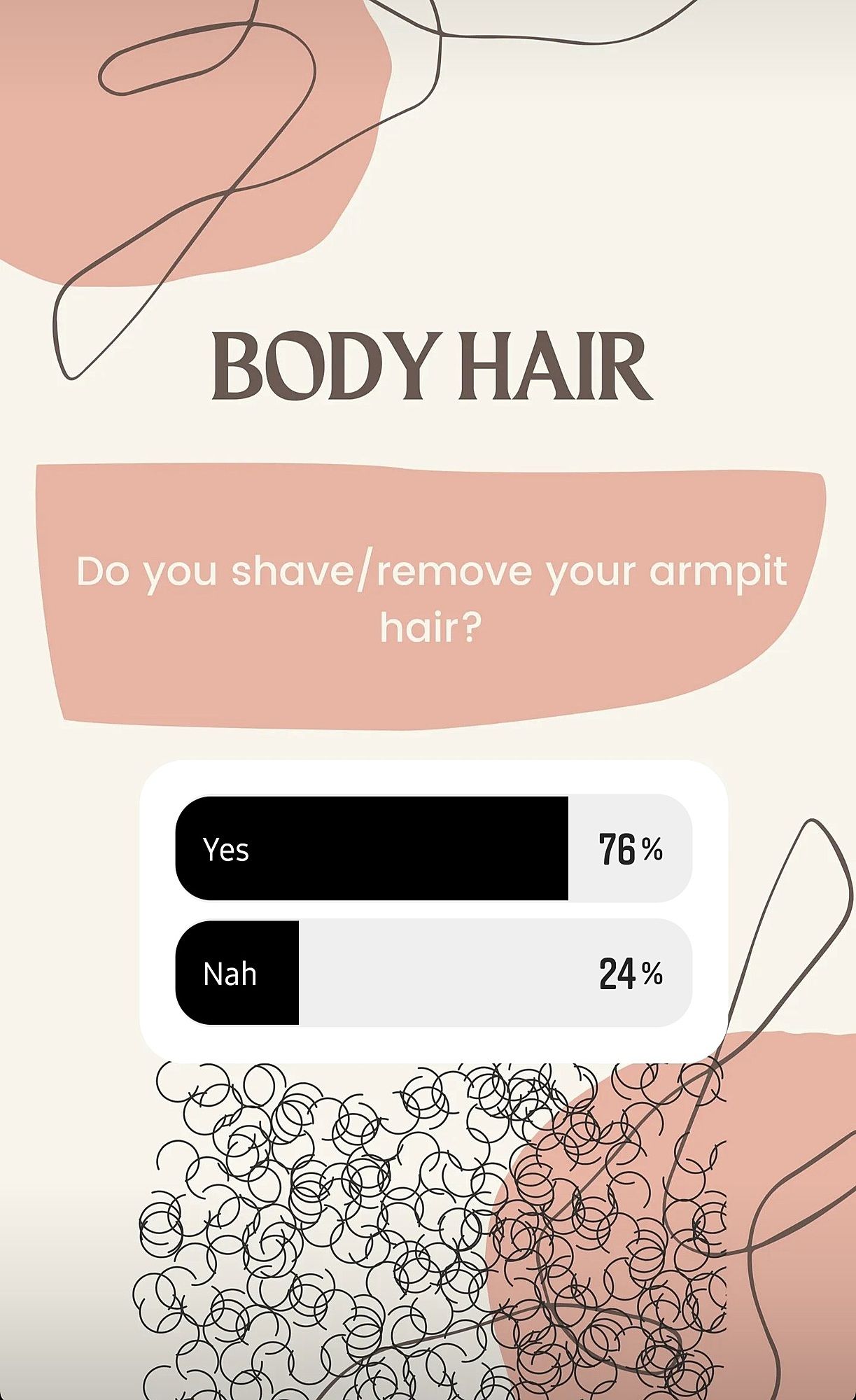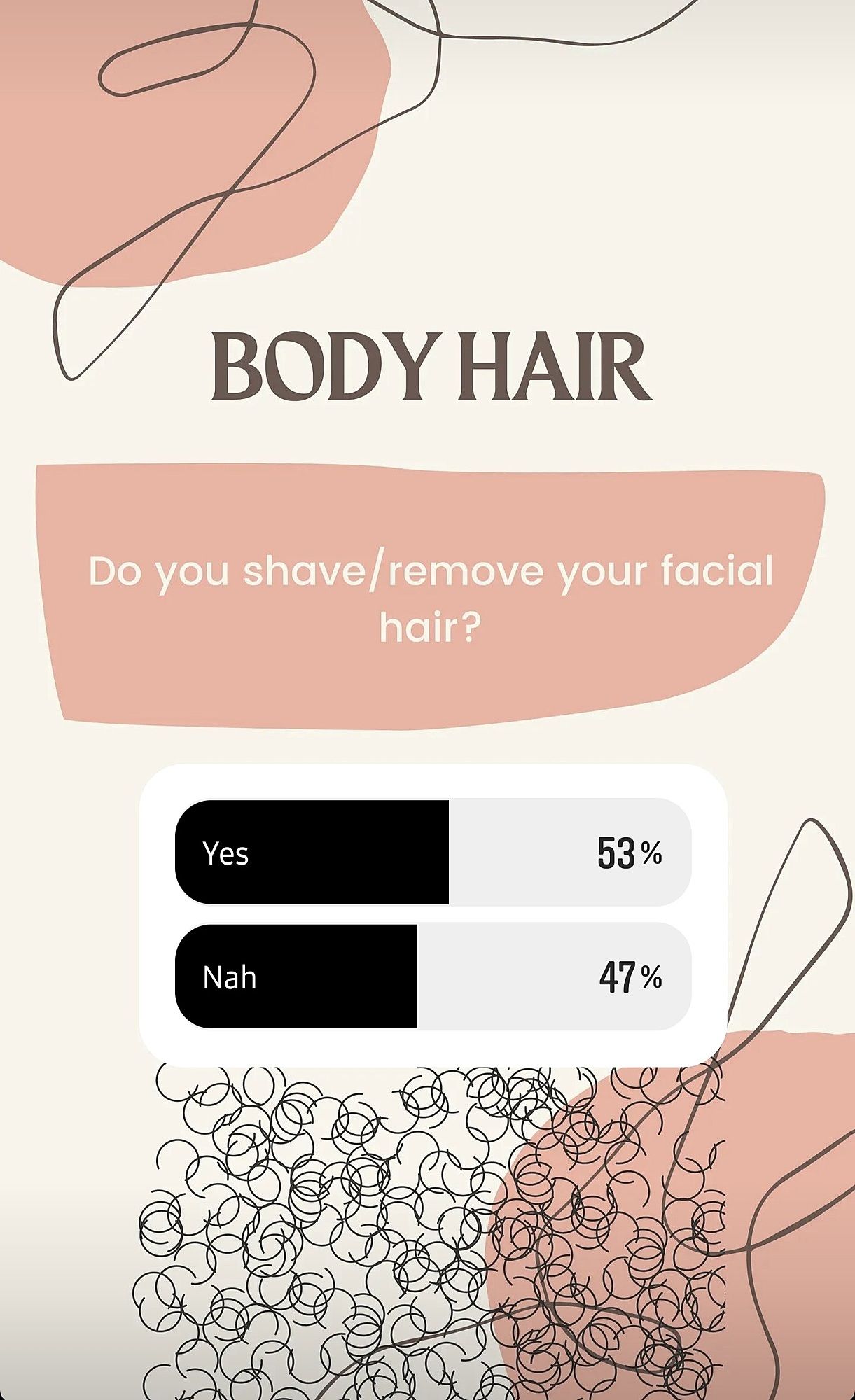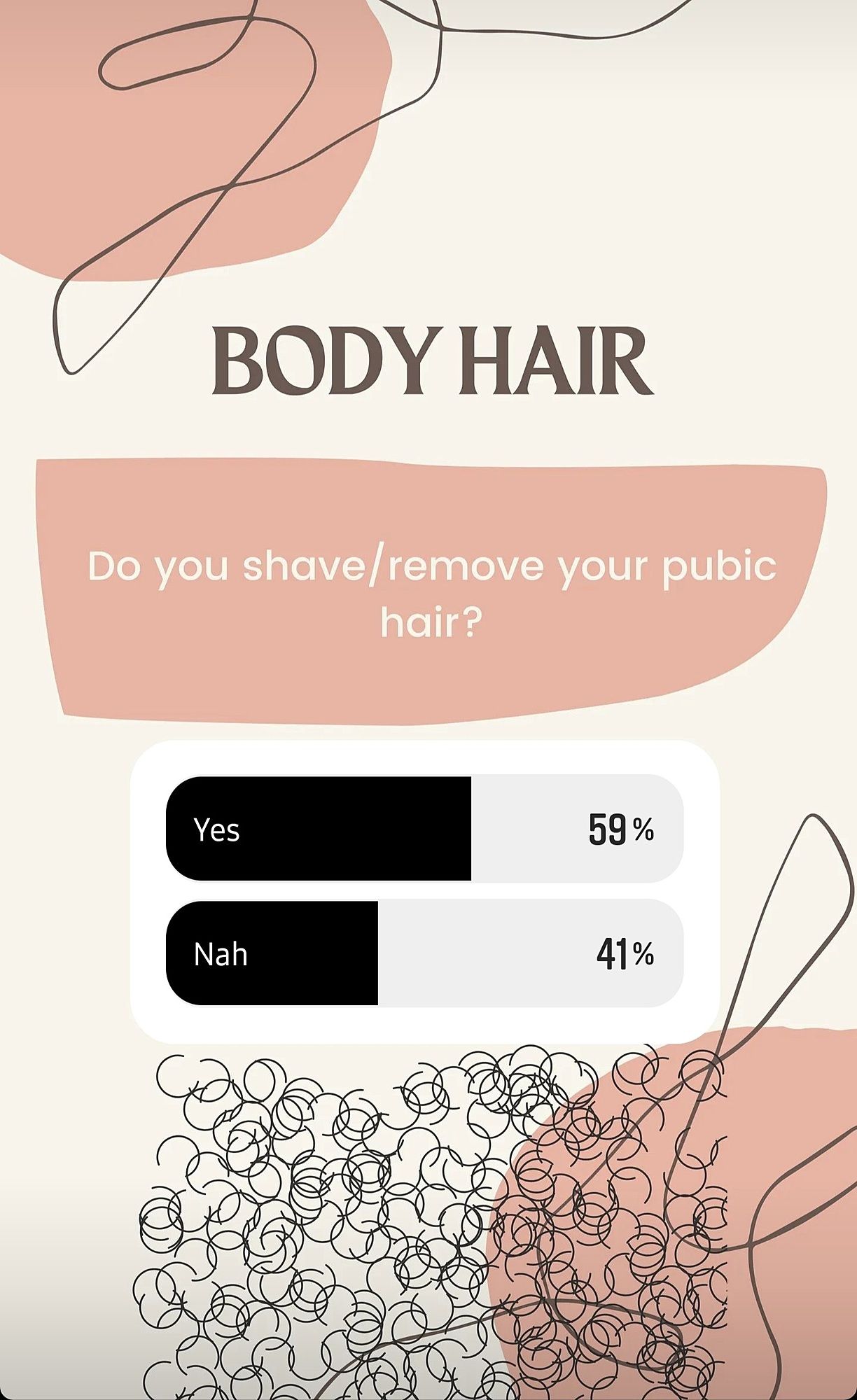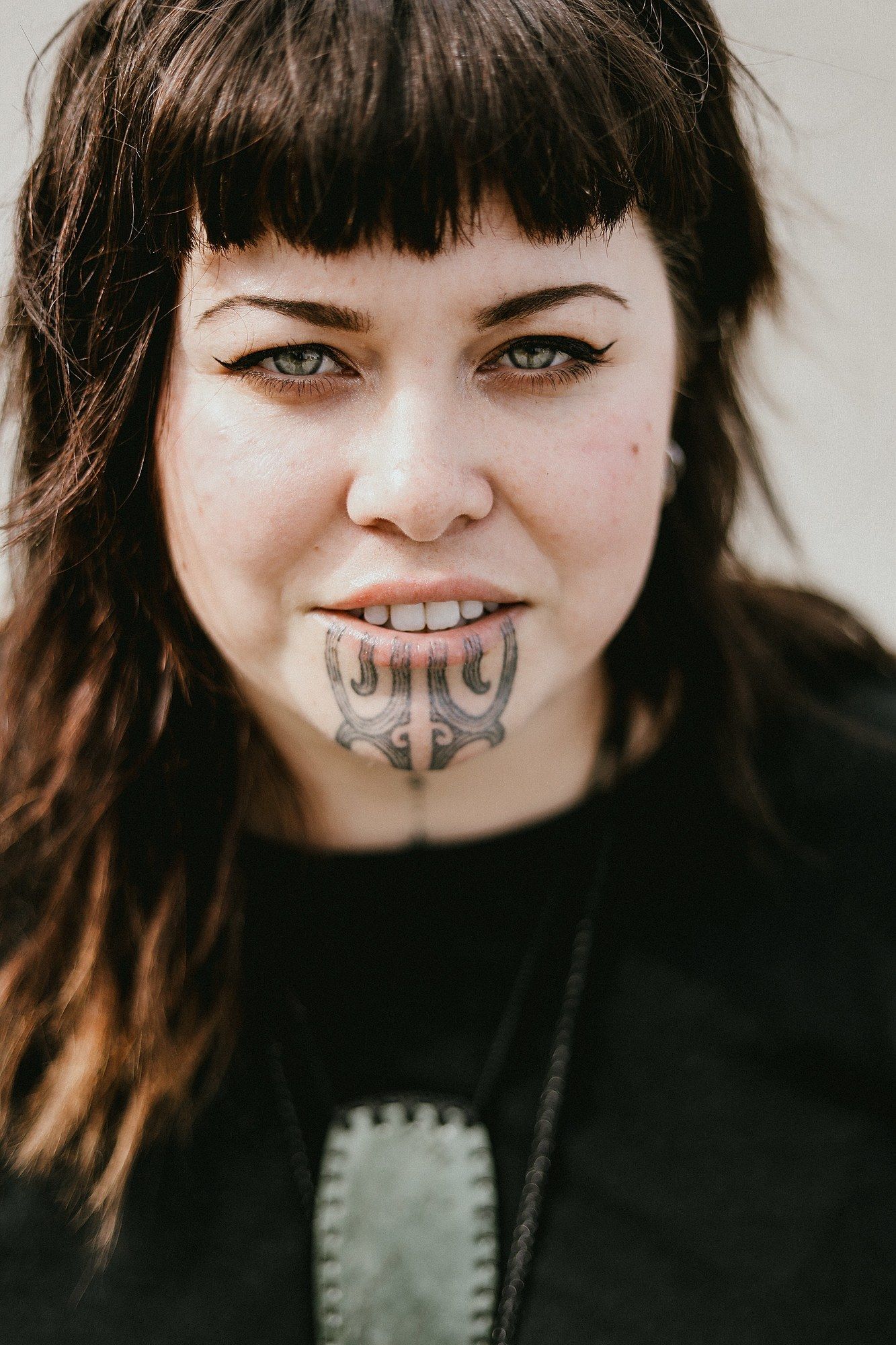Bushy
Ana McAllister surveys her Instagram followers to check the vibe on body hair.
Western society polarises many aspects of the fem body. Big boobs, little boobs. Stretch marks, no stretch marks. Fat, no fat. It’s all up for debate when it comes to womxn’s bodies. One of the most discussed and debated parts of a fem body is body hair. What is this fascination? What are the impacts, and what do fem people actually think about their body hair?
Body hair comes in and out of fashion, from the big pubic bushes of the 70s to the near full-body lasering of more recent times. As a cisgender woman, since my sexual awakening, pubes have been at the centre of this bushy discussion, so I ask myself, to pube or not to pube?
I ask myself, to pube or not to pube?
Here’s more context on my body to talk about my perspective. I exist in a Māori body, though I am white-passing. My body is fat, though a small-sized fat. My body holds trauma and post-traumatic stress disorder, but it is able. These aspects of my identity inform my relationship with my body hair. There are many identities that I am not a part of, which may inform different relationships to body hair: Trans people, non-gender-conforming people, and people with medical conditions that impact their body hair or mobility. All of these will change how people feel about their body hair.
I have gone through different phases of body-hair management or control. As a tween a few years into puberty, I teamed up with my mum to convince my dad to ‘approve’ me shaving my legs, yelling from my downstairs bedroom, “I look like a werewolf!” Then as a university student in art school, I soon found my shaved armpits and legs made me the odd one out. As a 26-year-old, I now finally have a comfortable relationship with my body hair – mostly.
I have hairy legs, armpits, toes, upper lip and lower back
I have hairy legs, armpits, toes, upper lip and lower back. I have trimmed my eyebrows and pubes. This changes depending on my mood or events. I sometimes remove facial hair if I am putting on lots of makeup. I sometimes let my pubic hair grow out if I can’t be bothered. I sometimes pluck the hairs off my toes. I’ll admit that, at times, I feel overwhelmed by the male gaze and hack at my moustache with a slightly rusty facial Dermal blade.
I sometimes feel I exist within an echo chamber of friends who scream body sovereignty and will fight anyone who dares to colonise a body. So I reached out to my Instagram followers – all 6,671 of them: 93 percent identify as femme, and 51.4 percent are in my age bracket, 25–34. I was interested in getting a very unscientific screenshot of the current vibe regarding people's perspectives on body hair. I started with polls asking questions about people's current body-hair regime. In my whole time on Instagram question boxes, I have never had so many responses and so many opinions shared with me. Clearly, people have a lot to say about this topic.
*
I was surprised that most of those who answered the polls do remove or trim their leg, armpit, facial and/or pubic hair. I was even more shocked that 88 percent started this maintenance when they were younger than 16. That’s a lot of body hair plucked, waxed, lasered and creamed over the years, and a really young age for so many people to feel the weight of body-hair judgement.
I wanted to create some space for people to share their whakaaro on this further, so I made a question box offering an option for people to do so. From this, I gathered some really eye-opening responses. I’m going to give a general overview of the different whakaaro below.
Some people have a similar ethos to me regarding body hair. Which is super dependent on the mood and vibe of the moment. I feel like this position is a mixture of style and energy. Today, I like the style of armpit hair, similar to the way I’m really into monochromatic outfits. Also, I’m too lazy to pluck my toe hairs right now, but I might not be tomorrow:
“I go through phases of removal. But I do it for me, for comfort and feelings, definitely not for other [people].”
“I have PCOS and get thick hair all over my body, including my face"
One thing that doesn’t relate to me and my relationship with body hair is the added layer of hormonal disorders like polycystic ovary syndrome (PCOS). One of the PCOS symptoms is increased hair growth, including on the face. It’s estimated that 13 out of 100 uterus owners have PCOS:
“I have PCOS and get thick hair all over my body, including my face. The daily shaving harms my skin. I work in a client-facing job, which makes me self-conscious about it. I wish I could just freely grow it without societal scrutiny. Sucks.”
Another aspect of our sometimes complex relationship with body hair is the way our mind reacts to sensations. For some people, the sensation of body hair can be great or horrible. Think shaved legs on clean sheets or the wind catching your leg hair; those can be really intense sensations in a positive or negative sense:
“Having sensory issues means sometimes I have to remove body hair to avoid overstimulation.”
*
Some people spoke about being shamed for their body hair, which started for many at a really young age:
“I remember being told by other girls at 12 years old that I’d be pretty if I removed my body hair.”
“I remember at 7 years I was aware I was hairier than other girls. I’ve always been whakamā.”
“When I was younger, the standard was to be ‘clean’ all over. Except for your head.”
Shaming from peers can obviously stay with us long past puberty. But another kind of shaming that was really heartbreaking was shaming from family, especially mothers:
“I was 12 when my mum forced me to shave.”
Alongside these heartbreaking moments are the stories of those disrupting that intergenerational thinking:
“Shaving my legs was my first act of rebellion towards my mother.”
“Since having my daughter, I’m becoming more aware of my own attitudes around hair removal and how other people's attitudes contribute to this.”
“Having a daughter has changed my mindset towards body hair, but it’s hard to shake the stigma.”
*
Some people spoke about shaming coming from sexual partners (if you needed a reminder of how trash some men are):
“I told a guy I was seeing that I didn't shave my legs. He was disgusted and said, ‘What if they look like mine?!’ and I thought, well I’m definitely not telling him I don’t shave my armpits then. Then I thought, how did we get to seeing something so natural as gross but only on women? I left him.”
“I dated some really awful men when I was younger. They unequivocally preferred I kept things trimmed. Growing out my body hair (all over) symbolises celebrating my Queerness and Genderqueerness. I have full bodily autonomy. Lord have mercy on anyone who tries to shame me for any physical aspect of myself.”
This response connects to others in the way some people see body hair as an affirming aspect of their body:
“Growing up with PCOS was hard when I identified as a woman. Now I identify as enby and am on T; I have very different thoughts about body hair than when I was growing up and was ashamed.”
*
It was clear that people saw a connection between removal of body hair and the patriarchy. This idea isn’t anything new, but it’s an important position to understand. As long as it’s contextualised in a Western setting, within Western beauty standards:
“The double standards of men thinking body hair is gross fuels me to grow mine longer.”
“So much shame is put in our body hair, so much time wasted managing it for men should be our choice, fucking patriarchy.”
“I don’t care about body hair, yet I’m still surprised when I see it on women. Patriarchy.”
“I’m fully aware that women removing body hair is a patriarchal beauty standard, and I am subscribing to that. However, I like feeling cleanly shaven! While I’m aware society has made me feel like I need to shave, I detest feeling shamed for it because it’s my choice. Everyone should be able to have as much or as little hair anywhere they want!”
Have we gone too far in the other direction? Has ‘body-hair positivity’ begun to shame womxn for shaving
Have we gone too far in the other direction? Has ‘body-hair positivity’ begun to shame womxn for shaving? It was interesting how many people felt shamed for removing body hair, which I think happens a lot in every ‘positivity’ movement; we saw the same thing happen in ‘body positivity’. Where language like ‘real bodies’ started popping up. It’s this overcorrection that turns movements toxic. As if shaving somehow makes you a traitor to feminism. This is so ridiculously off-base and smells distinctly of white feminism, ableism and racism:
“I shave my legs, and my ‘feminist friends’ joke about it in a shaming way.”
“There can be a lot of ableism in the ‘body-hair positivity’ space. Shaming people who remove hair (for sensory reasons).”
It seems like many people feel shame and embarrassment about removing body hair:
“I’m trying to make peace with my leg hair, but I hate it. It makes me feel ugly, stupid and ingrained.”
“It’s something I’d like to be brave enough to not remove one day.”
“Having to shave my face daily makes me sad. I really wish I could change that.”
*
No matter what womxn do, we’re made to feel like it's wrong. On one side, if you’re too hairy, you’re wrong and gross. If you remove the hair, you’re a bad womxn and giving in to the patriarchy. I feel like the absolute crux of this conundrum is a small patch of hair rarely even seen – the bushy reason this piece was written. Pubes:
“I got laser [hair removal]. It was the only way my ex would go down on me. I’m gutted now I let myself be manipulated.”
“I was all about letting the huruhuru down there thrive, but it’s funny how a few sexual encounters and comments from men can change that.”
“I like all my body hair apart from the bikini line; I don’t know why but that shit needs to go!”
“The older I am, the more I appreciate my pubic hair. I feel empowered by it.”
“I get horrendously bad periods, so I find little to no public hair helps keep cleaner.”
“My bush is comforting to me; I like to brush my fingers through it when I’m having a sleep-in.”
Hairy legs don’t make you a better human, and neither do shaved legs
After reading hundreds of responses and whakaaro about body hair, I was left with a few key lessons. Pubic hair had the most equal mix of people removing and keeping it, with the strongest opinions in either direction. Either way, the patriarchy will never be happy with what we do. But most people who are removing their body hair aren’t doing it for anyone but themselves. So stop judging them – that’s gross. They also could be doing it for reasons that affirm parts of their identity. So stay out of other people's business.
If you are removing your body hair because of the shame you feel, that’s okay. We all walk through the world experiencing different levels of misogyny, and if you want to ease some of that, do it. I would say it’s just hair but, clearly, as articulated above, it’s not just hair. If you’re interested in growing out your body hair, consider the media you take in. Follow people with different bodies on social media. And just give it a go. You can also shave it off again.
Hairy legs don’t make you a better human, and neither do shaved legs.
Feature image: Anastasia Burn
